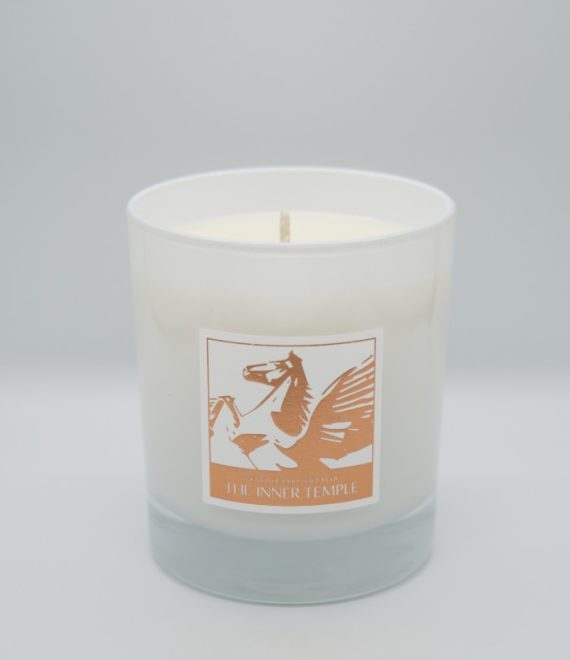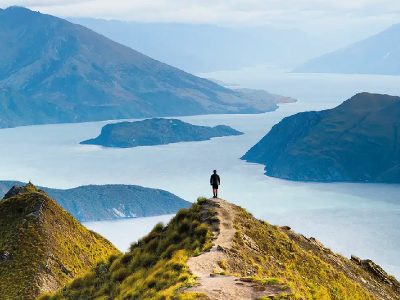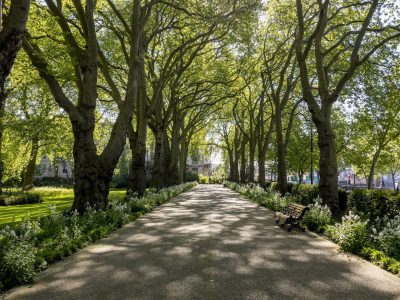

Pegasus Scholars: New Zealand
I was thrilled when I found out I was going to New Zealand as a Pegasus Scholar in 2023.
In the capital of New Zealand, I was welcomed to the firm of Luke Cunningham Clere (LCC), the Crown Solicitor in the Wellington region. I was honoured to be greeted with a mihi whakatau – a form of welcome ceremony attended by the whole firm – followed by waiata (a traditional Māori song) and sharing kai (food).
A Crown Solicitor is responsible for Crown prosecutions. LCC is a private firm warranted by Crown Law (like the Crown Prosecution Service and Government Legal Department) to conduct prosecutions in the District Court and High Court. There are two types of lawyer in New Zealand: (i) those who practice as barristers and solicitors, and (ii) those who are only barristers (‘barristers sole’). My colleagues at LCC were the former. Lawyers do either prosecution or defence work (not both, as we often do in England and Wales), but some of my LCC colleagues had previously worked as defence lawyers.

Whilst at LCC from October to December 2023, I attended client conferences, wrote submissions, attended a variety of hearings and trials, and saw some brilliant advocacy. I attended a month-long, multi-hander manslaughter trial in the High Court and was able to meet lawyers and police teams and see how the New Zealand system deals with lay and expert witnesses and juries. I did not have any rights of audience as a member of the Bar of England and Wales, although I was permitted to sit, robed, on counsel’s row.
Many of the trials I saw shared formalities and procedure with England and Wales. However, I noted some significant differences, which included:
- Either party can challenge up to four jurors ‘without cause’;
- The Defence give a short ‘Defence statement’ (speech) after the prosecution opening speech to briefly set out the issues, in addition to their opening speech at the start of the Defence case that we are familiar with in England and Wales;
- The jury cannot draw adverse inferences if defendants give a ‘no comment’ interview to police;
- It seemed to me that more defendants choose not to give evidence than in England and Wales;
- The Defence does not have to provide any information to the prosecution about its case prior to trial and the prosecutor has to work out the Defence case in court by listening to cross-examination. There is no Defence case statement as in England and Wales.
Wellington has a vibrant café culture; for a small city of 200,000 people, it is packed with more cafés, restaurants and bars than I have ever seen. There are no Pret a Mangers or supermarket meal deals in sight which means workers venture to cafés for lunch (this is my theory why New Zealanders are so friendly and cheerful; no sweaty pre-packed sandwiches…). Te Tohu Pakanga o Aotearoa (the New Zealand coat of arms) is displayed in courtrooms across the country. On the left is a European woman holding the flag of New Zealand, and on the right is a Māori rangatira (chief) holding a taiaha (traditional Māori weapon).
Inside the New Zealand Supreme Court
The New Zealand Supreme Court is a beautiful building that looks like a cone of the native kauri tree, with a window into the courtroom from outside representing open justice. It was great to meet the Supreme Court judges and discuss law and rugby (everyone seemed to know I came from Cardiff, the home of Welsh rugby) before attending the Pegasus Scholar drinks function. Lawyers explained how New Zealand took inspiration from Wales in its approach to bilingualism. For example, the Māori Language Act 1987 (updated in 2016) mirrors the Welsh Language Act 1967 (updated 1993). The Waitangi Tribunal has considered the use of bilingual road signs in Wales and has commented that Wales takes bilingualism more seriously in Government services. The Rules Committee made proposals in 2023 to amend the High Court rules by softening them which, once approved by Cabinet, will bring the court procedure in closer to Wales’. Bilingualism in the courts of Wales and New Zealand is something I took a particular interest in and researched with my co-Pegasus Scholar, Georgie Rea of Garden Court Chambers. I am continuing this research now I am back in Wales. We are immensely grateful to the judges, lawyers, acivists and academics who offered their time, knowledge and expertise as part of our research.
However, it was by no means all work. I flew into Aukland initially and spent a week back-packing through North Island on the way down to my placement in Wellington. Well, there was a backpack involved, but there was also 30kg of court dress and swimsuits.
Highlights were: surfing at black sand beaches, hiking over active volcanoes, and visiting geothermal pools where I had kānga waru (a Māori steamed pudding) cooked in one of the pools. Up the volcano, I bumped into a judge and solicitor from Cardiff where I practice – small world! I visited New Zealand’s (and the world’s) longest place name, “Taumata whakatangi hangakoauau o tamatea turi pukakapiki maunga horo nuku pokai whenua kitanatahu” (85 letters), which beats Wales’ longest place name (“Llanfairpwllgwyngyllgogerychwyrndrobwllllantysiliogogogoch” with 58 letters) which I also visited for the first time last year.
In Wellington, I spent two days canoeing along the Whanganui River and staying at a marae (meeting ground and a focal point for Māori communities) at the halfway point. This river was controlled by Whanganui iwi (tribes) for more than 700 years until European settlers arrived in the mid-1800s and the tribes’ traditional authority was undermined. In 2017, the Government gave the Whanganui River legal personhood, acknowledging that all its physical and metaphysical elements are a living whole (Te Awa Tupua (Whanganui River Claims Settlement) Act 2017). This recognised the unique ancestral relationship between the Whanganui River and Whanganui iwi and acknowledged te Tiriti o Waitangi (the Treaty of Waitangi). The Te Tiriti o Waitangi is an agreement made between the British Crown and about 540 Māori rangatira (chiefs) in 1840. There is a te reo Māori (Māori language) and English language version. Relevant to te Tiriti o Waitangi today is the Waitangi Tribunal which has exclusive authority to determine the meaning and effect of te Tiriti o Waitangi and decide issues raised between the two language versions.
It also “makes recommendations on claims brought by Māori relating to legislation, policies, actions or omissions of the Crown that are alleged to breach the promises made in the Treaty of Waitangi”.
I finished work at LCC before Christmas and spent three weeks travelling around the South Island before arriving back home to British winter and, thankfully, a full diary.
Visting New Zealand as a Pegasus scholar was a fabulously enriching experience. Special thanks to the Pegasus Scholarship Trust, the Crown Law Office and Inner Temple for the opportunity. Thank you to all my colleagues at LCC for their patience, warmth and guidance and for sharing their knowledge with me, Kate Feltham who was my first contact in New Zealand, and Wilber Tupua, my LCC buddy.
Talia Keskin
30 Park Place Chambers
